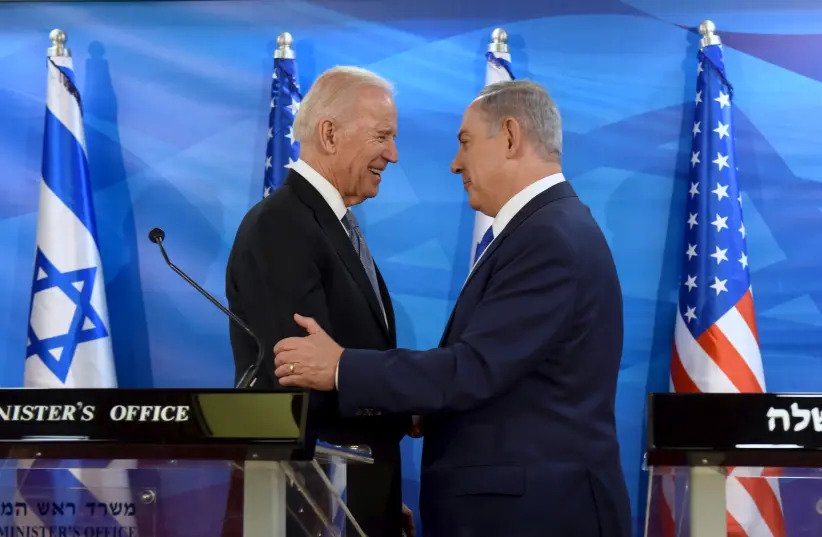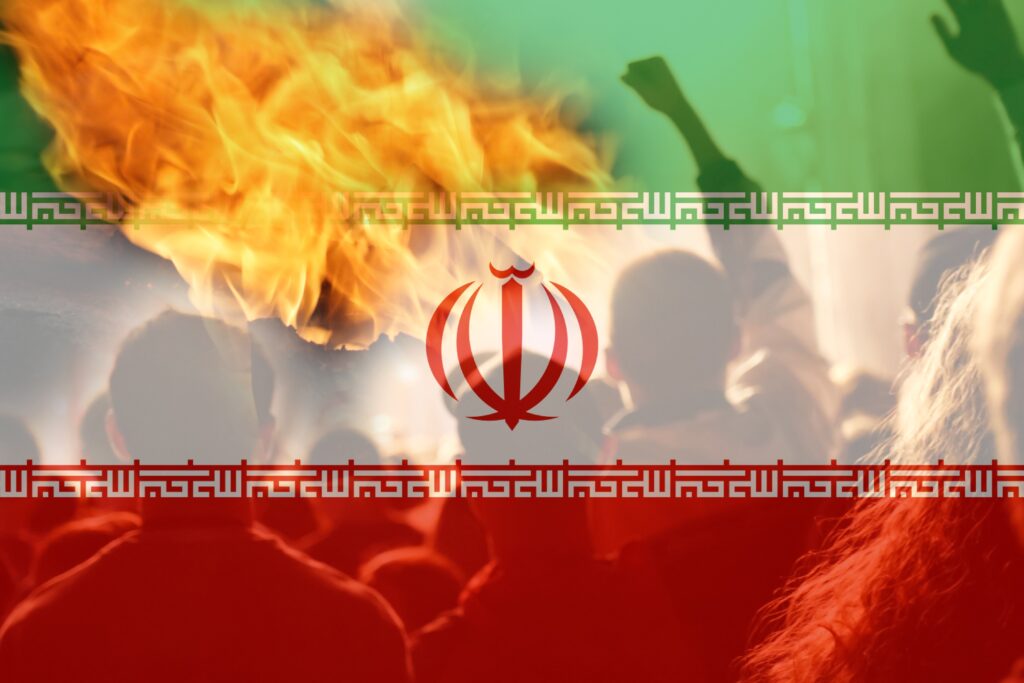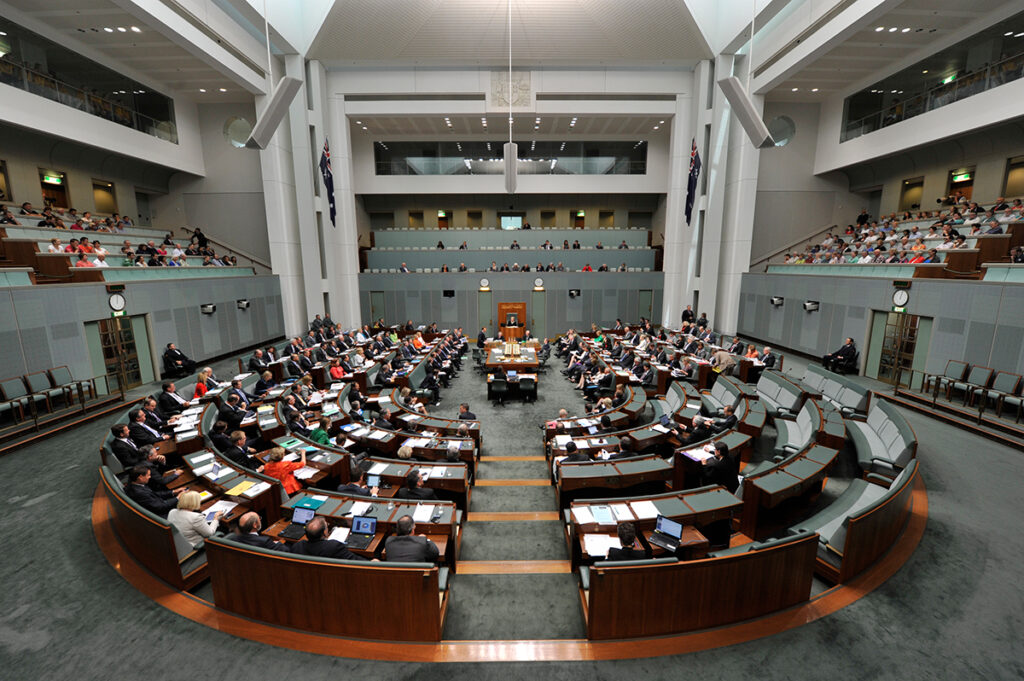UPDATES
Israel and Middle East consider a probable Biden administration
November 6, 2020 | AIJAC staff

Update from AIJAC
11/20 #02
The US election remains too close to call, but it is clear that a Biden administration at this point looks more likely than the Trump Administration remaining in office.
This Update looks at some preliminary analyses of what a Biden administration might mean for Israel and the Middle East.
However, we also strongly recommend this video of an AIJAC webinar on this subject conducted yesterday with top American expert Dr. Robert Satloff, Executive Director of the Washington Institute for Near East Policy.
We lead with some discussion of what a Biden administration might do differently in the Middle East with two Israeli experts interviewed by Israel Kasnett of the JNS.org news agency. Hebrew University scholar Yonathan Freeman suggests a Biden Administration will want to improve relations with the Palestinians, and also could have disagreements with Israel over Iran and China. David Weinberg of the Jerusalem Institute for Strategic Studies suggests that if a Biden administration continues to push for more normalisation deals between Israel and its Arab neighbours, this could be a key way to weaken rogue actors in the region and achieve American goals – but he also expresses concern that the Administration may not recognise the changed regional paradigm that the recent accords have created. For the analysis of both these scholars, CLICK HERE.
Next up, the Jerusalem Post comments on the state of direct Israel-US relations in an editorial. The paper suggests that, regardless of the election outcome, Israel needs to do more to reach out to the US Democratic party, portions of which have become anti-Israel, and to push back against the perception that Israel and its Prime Minister, Binyamin Netanyahu, are linked to the Republicans. The paper suggests a Biden administration may be an opportunity to do this, given the long-standing pro-Israel credentials of Biden, as well as his running mate Kamala Harris. For the Post‘s full argument, CLICK HERE.
Finally, we offer a look at how some other Middle East actors may react to the election outcome, from strategic analyst Seth Frantzman. He focusses especially on the region’s revisionist powers, Iran and Turkey, as well as the outside actors seeking to oust US influence, Russia and China. He suggests both Iran and Turkey will likely be very cautious about initiating any crises or conflicts in the next few months, but for very different reasons. For his explanation of why, CLICK HERE.
Readers may also be interested in…
- More on the significance of the election for Israel from former Ambassador to the US Michael Oren.
- A discussion of Palestinian hopes from a Biden administration from Israeli Arab affairs expert Col. (ret.) David Hacham.
- Israeli commentators Boaz Bizmuth and Ron Ben Yishai offer differing views on the legacy of Trump over the last four years.
- American Jewish columnist Jonathan Tobin on the significance of the American Jewish vote in the election.
- Israeli diplomat Danny Danon urges the next US President to recognise the need to keep sanctions pressure on Iran. Meanwhile, US-based Iran expert Alireza Nader says the Iranian regime is doomed by its lack of legitimacy among the Iranian people, no matter what policy the US Administration adopts.
- One Israeli politician suggests a Biden victory may lead to early elections in Israel, while another says a renewal of the JCPOA nuclear deal with Iran by a Biden administration may lead to a war between Israel and Iran.
- Some examples from the many stories and comments now appearing at AIJAC’s daily “Fresh AIR” blog:
- Sharyn Mittelman on remembering the legacy of Yitzhak Rabin, the Israeli soldier-statesman who became a martyr for peace, on the 25th anniversary of his assassination this week. Plus, an AIJAC video commemorating his life and death.
- Ariel Zohar on the significance of the suspension of former British Labour leader Jeremy Corbyn by his party in the wake of a damning report on antisemitism in British Labour by Britain’s Equality and Human Rights Commission (EHRC).
- Naomi Levin on welcome signs the ABC may be considering adopting the International Holocaust Remembrance Alliance’s definition of antisemitism as part of its policies to combat hate speech.
- AIJAC’s comment on the recent terror attacks in France, and the incitement against France by leaders in some Muslim-majority countries, including Turkey, Pakistan and Malaysia.
What the next US administration could mean for Israel and the Middle East
While the election results still remain unclear, observers have questioned whether a potential Biden administration could treat Israel with some level of hostility that was especially seen during the last few months of the Obama administration.
BY ISRAEL KASNETT
JNS.org, November 5, 2020

Prime Minister Benjamin Netanyahu (left) and President Donald Trump at the Abraham Accords signing ceremony at the White House, September 15, 2020. Whether these regional normalisation efforts will expand to other states is one key post-election question (Credit: Alex Brandon / AP).
With razor-thin margins separating U.S. President Donald Trump and former Vice President Joe Biden, the contentious race for the White House has yet to produce a clear victor. Around the globe, all eyes are on the elections, but in Israel in particular, questions are being asked over what the next four years could look like with regard to the Israeli-Palestinian conflict and Israel’s new relationship with Bahrain, the United Arab Emirates and Sudan.
Yonatan Freeman, an international relations expert at the Hebrew University of Jerusalem, told JNS that the Palestinians “stand to gain” from a Biden administration.
According to Freeman, if Biden wins the election, “there is a potential that the Trump ‘deal of the century’ will be replaced by a Biden plan, though it may incorporate certain aspects of what Trump put forth, as well as policies that Biden was a part of during the Obama administration.”
While as vice president, Biden played a prominent role in helping to shape the Obama administration’s foreign policy, including on Israel, several major shifts in the region have occurred over the last four years, especially in the last several weeks with the Abraham Accords, that could re-shape Biden’s approach to the Israeli-Palestinian conflict. At the same time, foreign policy may also take a back seat for early in a potential Biden administration as the U.S. seeks to get a handle on the coronavirus pandemic.
Freeman believes that the Palestinians “will potentially have an increase in diplomatic standing vis-à-vis relations with the United States and certain aid which was frozen by Washington during the Trump presidency may now be released to the Palestinian Authority both directly and by way of contributions by the U.S. to international bodies that have been shunned by Trump.”
There will likely be more criticism of Israel when it comes to its activities in the West Bank, too, and a future U.S. ambassador to Israel may have a weaker relationship with the Israeli government.

Hebrew University international politics expert Dr. Yonathan Freeman
Freeman said he does not think Biden will close the U.S. embassy in Jerusalem; however, he “might change U.S. policy when it comes to the Golan Heights,” although a senior Biden campaign official recently told JNS that the former vice president would likely keep Golan recognition.
Based on what Israel witnessed during the last few months of the Obama administration, observers have questioned whether a Biden administration could also treat Israel with some level of hostility. According to Freeman, it is likely that “more U.S. criticism may be directed towards Israel even in international bodies like the United Nations.”
He noted that pro-Palestinian groups “from inside and outside the Democratic Party,” as well as stronger U.S. relations with the European Union, “will likely have a stronger way of impacting the U.S.-Israel relationship.”
Regarding Iran, Biden has mentioned a number of times that he intends to rejoin the 2015 nuclear deal that Trump pulled out of in May 2018, likely lifting the heavy sanctions in the process and once again giving Iran access to significant cash.
By doing so, said Freeman, a Biden administration could improve Iran’s standing diplomatically. “This could impact relations with Israel and cause the sort of disagreement that existed during the Obama presidency,” he said. “I think that there will be increased pressure on Israel to distance itself from China. I think that this will be Israel’s ‘question of the century’ because undoubtedly a change in Israel-China relations will have a great impact on Israel, both when it comes to its security and economy.”
With regards to the Abraham Accords, Freeman said he believes that the United States “will continue to push for improved relations between Israel, and the Arab and Muslim world, as a way of improving the possibility of attaining a deal to the Israeli-Palestinian conflict as a way of improving security for U.S. interests, especially when it comes to Iran, and as a means of opening up economic opportunities for U.S. companies.”
Freeman said that a Biden administration will likely renew direct negotiations between American and Palestinian teams, “without Israel necessarily being involved.”
Indeed, the Biden campaign’s top foreign-policy official, Tony Blinken, is a veteran of the Obama administration, serving as deputy secretary of state, and will likely get a senior post in a potential Biden administration. While Blinken has praised the Abraham Accords as a “positive step,” he thinks that the Trump administration has ignored the Palestinians and would look to restart negotiations with them.
The greatest impact the new U.S. administration will have on Israel, regardless of whether Trump or Biden sits in the White House, “will concern Jerusalem’s relations with Beijing,” stressed Freeman.
“I think that there will be increased pressure on Israel to distance itself from China,” he said. “I think that this will be Israel’s ‘question of the century’ because undoubtedly a change in Israel-China relations will have a great impact on Israel, both when it comes to its security and economy.”
“This will be especially true if a move is taken by Jerusalem to distance itself from China, or if Israel decides to join the United States and its criticism of Beijing,” he added.
Freeman warned that during the next U.S. administration, the Jewish state may have to choose whether it stands with Washington or with Beijing.
“I think that this question is already greatly on the minds of Israeli decision-makers,” he said.
‘Stiff American resolve in opposing Iran’s hegemonic designs’
David M. Weinberg, vice president of the Jerusalem Institute for Strategy and Security, told JNS that if Biden wins the White House, “nothing will better solidify the new Mideast dynamic which strengthens Israeli and Western interests than a few more peace accords between Israel and Arab/Islamic states.”

David M. Weinberg of the Jerusalem Institute for Strategic Studies
He added that this would mean a simultaneous “weakening” of Iran, Turkey, Russia and the radicals among Palestinians.
Weinberg said he believes that Niger, Morocco, Oman and Saudi Arabia “should be steered next towards reconciliation with Israel.” This achievement would require “intensive, high-level American diplomacy with concrete offers of U.S. military and diplomatic backing on the table.”
With a Biden administration likely to warm up to Iran much like the Obama administration had done, Weinberg said there must be “continuing stiff American resolve in opposing Iran’s hegemonic designs in the region,” and the next administration should resist the temptation “to overprioritize the Palestinian issue.”
“Israel fears that a Biden administration will not sufficiently sustain these principles,” said Weinberg.
He said he fears that a Biden administration “will downplay the Jewish-Islamic religious reconciliation discourse that underlies the ‘Abraham Accords’”; a discourse Weinberg said he views “as one of the most luminous aspects of the recent peace agreements with the UAE and Bahrain.”
He also noted that a Biden administration would need to recognize the changed paradigm in the Middle East when it comes to Israel.
“The lending of religious legitimacy to Arab peace with Israel, by referencing the Abrahamic common heritage of Arabs and Jews, implicitly acknowledges that Jews are indigenous to the Land of Israel,” he explained. “This is a mammoth transformation in the Arab approach to Israel, and the bluntest-ever rejection of the ongoing Palestinian campaign to deny and even criminalize the Jewish people’s historic rights in Israel.”
Weinberg, however, was hesitant to believe that a Biden administration would be open to such a vastly different paradigm in the Middle East, saying that this “hopeful, dazzling new discourse may be too ‘religious’ for the incoming administration, which will want to distance itself from the worldview of the many Orthodox Jewish officials who were key to Trump administration Mideast policy.”
After US elections, Israel needs to invest in ties with US Democrats
A strong Israel and a strong America are allies and it is essential for future Democrats to feel close to Israel and welcomed.
Jerusalem Post Editorial, NOVEMBER 5, 2020 21:21
The US election continued on Thursday to hang in the balance. Democratic Presidential candidate Joe Biden was approaching the number of electoral college votes needed to win.
In the midst of this, Israel needs to ensure that it is not perceived as a partisan issue despite pressure in recent years from all sides. The likelihood of a Biden win underscores the importance that Israeli leaders work closely with the Democratic leadership, not because of the election, but in spite of it. A strong Israel and a strong America are allies and it is essential for future Democrats to feel close to Israel and welcomed.
To understand the pressure Israel has been under we need only look to voices that have tried to paint Israel as increasingly in the Trump camp. On the other side, are radical leftists who have tried to claim that Israel is a right-wing country while working to distance it from their progressive values. This is a strange unity among the far Left and far Right that are trying to take Israel away from the centrist consensus that has underpinned decades of support for the Jewish state in Congress. It is essential that this drift not be allowed to continue.
It is natural that some on the Right will seek to encourage the Republican Party to be close to Israeli leaders. It is just as natural that Israel’s center and Left will feel at home with US Democrats and especially pro-Israel voices like Biden and his running mate Kamala Harris.What is important is that the message on both sides be that this is an American-Israel relationship, not a partisan one.
Unfortunately not enough is done to push back against the narrative that Prime Minister Benjamin Netanyahu – and Israel by extension – are linked closely to the Republican Party.
This is dangerous and toxic for a healthy relationship and normal foreign policy. Foreign policy should not be about party. Whether or not the Conservatives or Labor are in charge in the UK doesn’t need to change the US-UK relationship, for instance. There are some countries where political parties may be openly anti-American, but in the case of Israel there is bipartisan consensus on both sides that see the strong US-Israel relationship as essential. That means that there is no reason for Israel to have become so partisan in some US political circles. Yet, it has.
More should have been done to stop the drift and confront these illusions of partisanship. However, the last four years of hyper-partisan discussions combined with the last years of the Obama administration created a different impression.
Now is the time to do more to invest in cultivating relationships with Democratic voices and to share with them the importance Israel sees in the US relationship and particularly in their own relationship with Israel.
Often, negative views of Israel are not based on reality, but on myths and biases that are spread through the media, portraying Israel in a negative light. Some have tried to paint the country as “authoritarian” when Israel is in fact a vibrant democracy, one with a multiplicity of diverse parties.
Unfortunately for the last several years these critics were dismissed, rather than engaged. Pro-Israel and anti-Israel voices talked past one another instead of with one another.
Biden and his team represent a history of close relations with Israel and an understanding of the US-Israel relationship. When Biden spoke on Wednesday about how the presidency is not a partisan office and that the US president is president of all Americans he was showing the way to how the US-Israel relationship must transcend partisan politics. Israelis need to understand this. There is a lot of ground to be made up to engage with those who feel Israel tied itself too closely to the Trump administration.
On the other hand, the Trump administration deserves credit for the amazing measures it took to promote peace and security for the State of Israel. But it cannot be a relationship based on personalities. Rather, it is about people and their shared values. Israel and the Democratic Party should remember that in the months to come.
Could Iran, Turkey and others take advantage of US post-election doubts?
The usual shrill voices have been quiet for a few days, wondering like the rest of the world might happen.
By SETH J. FRANTZMAN
Iranian and Turkish media are taking a “wait and see” approach to the US election. The usual shrill voices have been quiet for a few days, wondering like the rest of the world what might happen. Turkey’s media is infamous for transmitting the narrative of the increasingly aggressive regime in Ankara. That means it usually telegraphs Turkish military operations before they happen, for instance threatening invasions of Syria, Iraq, or talking about the need to challenge Greece.
This week Turkey only hinted at new crises. Turkey’s President Recep Tayyip Erdogan thrives on military crises, often threatening Armenia, Syria, Iraq, Egypt, Cyprus, Greece, Israel and other countries. In recent weeks there was concern Turkey might shift from trying to boost Azerbaijan’s war with Armenia, to threatening Greece, Cyprus, US-backed Kurdish forces in Syria, or even Israel.

Turkish President Erdogan has relied on building a strong relationship with Trump – and may be pulling back from initiating any major military crises while things remain uncertain in Washington.
At the same time Iran’s regime is highlighting its ballistic missiles, and sending foreign minister Javad Zarif on an “American tour” that will begin in Venezuela. Venezuela is close to both Turkey and Iran, much as Hamas is backed by Ankara and Tehran. This gives these regimes a chance to stir up trouble as post-election indecision roils Washington. There is no indication yet that Iran or Turkey will exploit the election outcome.
The reason that Iran and Turkey are wary is that Turkey tried desperately to lobby the Trump administration, to the extent that Erdogan was the leader Trump listened to the most in phone calls in 2018 and 2019, frequently calling the White House to order the US to leave Syria. All those demands made by Turkey could fall on deaf ears and even result in anger by Trump if Trump feels betrayed. Trump views foreign policy as personal and transactional. Erdogan is weighing what to do next. His team has already slammed Biden and the Democrats. He accuses the US of backing “terrorists” in Syria, even though there have been no terror attacks from US-backed Kurdish forces from Syria.
Iran is thinking the opposite of Turkey. While Ankara is worried Trump might be angry if he feels betrayed by a new Turkish move against Greece, Syria or Israel, Iran, however, is hoping to appear to play the role of “good cop” for the next few months if Biden is about to take charge. Iran wants to reassure a future Biden administration that it is responsible and show that it suffered under Trump’s sanctions. Any crazy attacks by Iran, for instance on US forces in Iraq, or against Israel directly, would hurt its chances to start things off on the right foot with Biden.

Iranian Supreme Leader Ayatollah Ali Khamenei has mocked the US election, but Iran may nonetheless avoid any short-term provocations in hopes of possibly improving relations with a Biden Administration
Other regimes will be studying closely the results. China and Russia are the most important in this regard. Russia was accused of meddling in 2016 to support Trump. Now those accusations have largely left US media coverage. But can Russia pull off another “reset” as it did with the Obama administration. Russian President Vladimir Putin is surely wondering how to handle Biden, especially given Biden’s previous involvement in Ukraine and his knowledge of Russia’s role.
China has tough relations with the Trump administration. It too will want to be nice for the next few months, slowly sponging up influence globally but without provoking whoever is in the White House in January. It has a global reputation to repair anyway.
This leaves other actors out there that might try to exploit the US domestic chaos to achieve their goals. However, it is not clear if there are those who would go to war while the US is distracted. Would Hamas challenge Israel or will the Taliban try to march on Kabul? Those are certainly possibilities because there is knowledge that Trump may want to have one more troop withdrawal before January. That could be in Syria, Iraq or Afghanistan. There is a lack of clarity. Nevertheless, as the US outcome becomes more certain, Iran and Turkey may begin to make their moves, or Turkey may demand one more last minute favor from the Trump administration.
Tags: Israel, Middle East, United States





